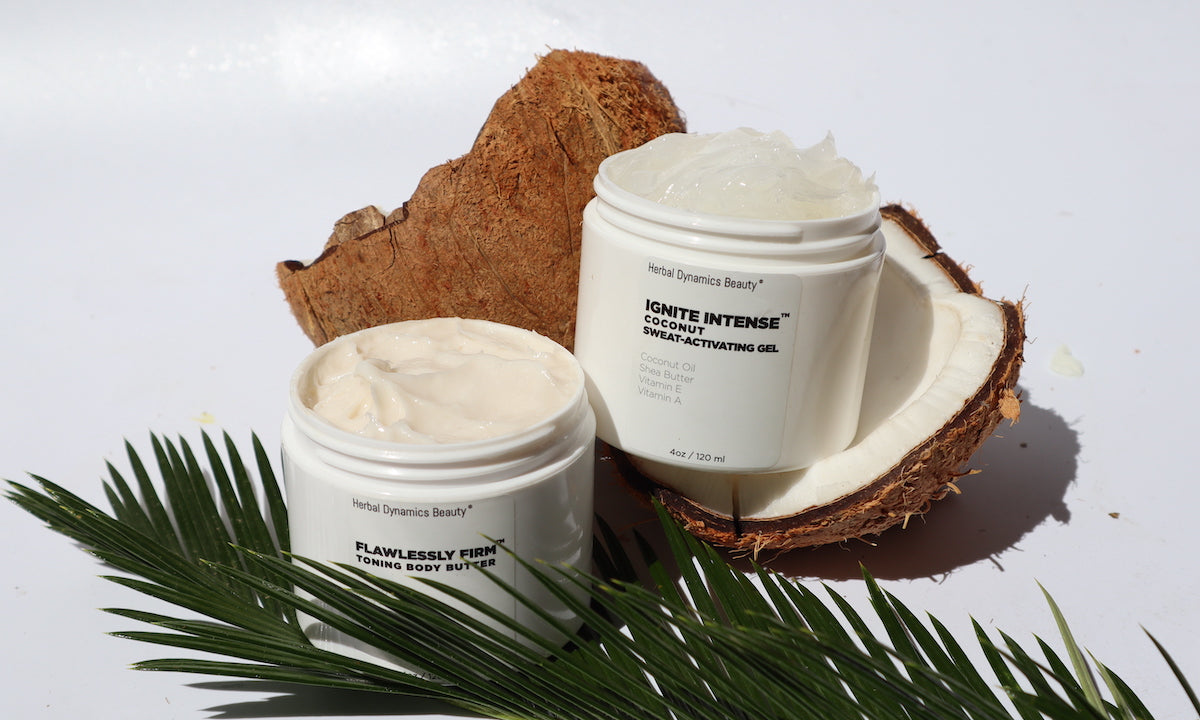Your Cart is Empty
FREE SHIPPING on US orders over $45. Save 25% With Code TAKE25 at checkout.
FREE SHIPPING on US orders over $45. Save 25% With Code TAKE25 at checkout.

Coconut oil has many uses and has earned its place as an ingredient in many powerful skincare products.
Coconut oil, or copra oil, is extracted from the kernel or meat of mature coconuts harvested from the coconut palm.
There are three types of coconut oil:
Virgin coconut oilis sometimes called "unrefined coconut oil." It is extracted from the fruit of fresh, mature coconuts without using high temperatures or chemicals. This the healthiest oil to consume.
Refined coconut oil is extracted from chemically bleached and deodorized coconut meat.
Partially hydrogenated coconut oil should be completely avoided, because it is just as harmful as other highly processed oils that contain trans fats.
Coconut oil is popular for use in cooking and baking, and it is now a common substitution for lard, butter, and cream for everything from pastries to baked potatoes to coffee to smoothies.
Coconut oil contains medium-chain fatty acids (MCFAs), such as lauric, capric, caproic, linoleic, and caprylic. MCFAs boost metabolism and help to convert food into energy more efficiently.
Lauric acid is present in the highest content, making up about 50% of coconut oil. Lauric acid has strong antimicrobial properties which enables it to kill harmful microorganisms. When lauric acid is digested, it creates a substance called monolaurin which can help kill bacteria, viruses, and fungi.
Virgin coconut oil is the one of the healthiest oils available. When the National Institutes of Health (NIH) conducted a study, they found that mice treated with virgin coconut oil had higher levels of brain antioxidants as well as lower levels of serum cholesterol, triglyceride, glucose, and corticosterone, suggesting the potential value of virgin coconut oil for calming stress in the body.
A 2012 study examined the amount of time it took for tomato carotenoids (phytonutrients that prevent oxidative stress) to be absorbed by animals in a laboratory setting. One group was fed a diet of primarily safflower oil, while another one consumed coconut oil.
At the end of the study, it was found that those who consumed coconut oil had far higher level of carotenoids, suggesting that it was due to the high level of fatty acids in coconut oil.
According to Dermatology Times, botanicals, such as coconut oil, have been used as topical treatments for skin since the earliest recorded history.
Coconut oil has abundant antimicrobial, anti-fungal, antioxidant, and anti-inflammatory properties. The abundant fatty acids give it skin-soothing benefits.
Today you’ll find coconut oil in face, hair, and body products, such as moisturizers, shampoos, and conditioners. Many people even use coconut oil straight out of the jar -- rubbing it on hair and nails, using it as a diaper cream, or even brushing their teeth or oil-pulling with it.
Here are many ways you can use coconut oil for skin:
Coconut oil does rank fairy high on the comedogenic scale. This scale tells us how likely it is that an ingredients used in a cosmetic product formulation will clog pores.
It is advised that anyone who is susceptible toacne breakouts and blackheads should avoid highly comedogenic oils, as they are likely to cause recurring acne problems.However, the lauric acid in coconut oil is antibacterial and antifungal, which makes it excellent for fighting acne. In fact, a study published in The Journal of Investigative Dermatology showed that treatment with lauric acid can stop bacterial growth on the skin over 15 times better than benzoyl peroxide.
The key benefits of coconut oil come with none of the typical toxic side effects of commercial acne treatments, such as redness, swelling, peeling, and dryness.
Coconut alkanes are a substance obtained from the complete reduction and hydrogenation of a mixture of fatty acids derived from coconut oil. They are highly concentrated and yet still noncomedogenic, meaning they do not clog pores.